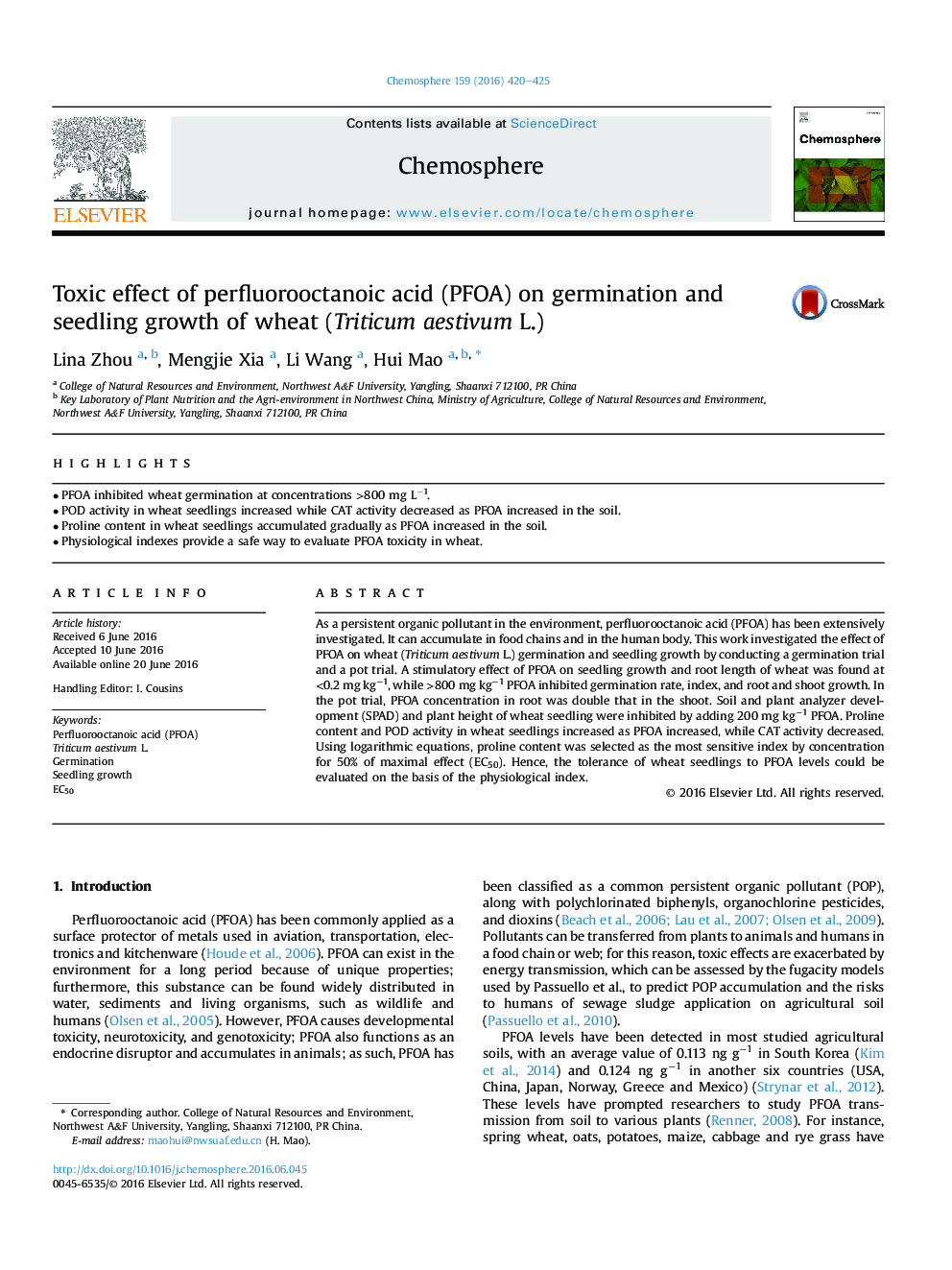| Article ID | Journal | Published Year | Pages | File Type |
|---|---|---|---|---|
| 4407424 | Chemosphere | 2016 | 6 Pages |
•PFOA inhibited wheat germination at concentrations >800 mg L−1.•POD activity in wheat seedlings increased while CAT activity decreased as PFOA increased in the soil.•Proline content in wheat seedlings accumulated gradually as PFOA increased in the soil.•Physiological indexes provide a safe way to evaluate PFOA toxicity in wheat.
As a persistent organic pollutant in the environment, perfluorooctanoic acid (PFOA) has been extensively investigated. It can accumulate in food chains and in the human body. This work investigated the effect of PFOA on wheat (Triticum aestivum L.) germination and seedling growth by conducting a germination trial and a pot trial. A stimulatory effect of PFOA on seedling growth and root length of wheat was found at <0.2 mg kg−1, while >800 mg kg−1 PFOA inhibited germination rate, index, and root and shoot growth. In the pot trial, PFOA concentration in root was double that in the shoot. Soil and plant analyzer development (SPAD) and plant height of wheat seedling were inhibited by adding 200 mg kg−1 PFOA. Proline content and POD activity in wheat seedlings increased as PFOA increased, while CAT activity decreased. Using logarithmic equations, proline content was selected as the most sensitive index by concentration for 50% of maximal effect (EC50). Hence, the tolerance of wheat seedlings to PFOA levels could be evaluated on the basis of the physiological index.
